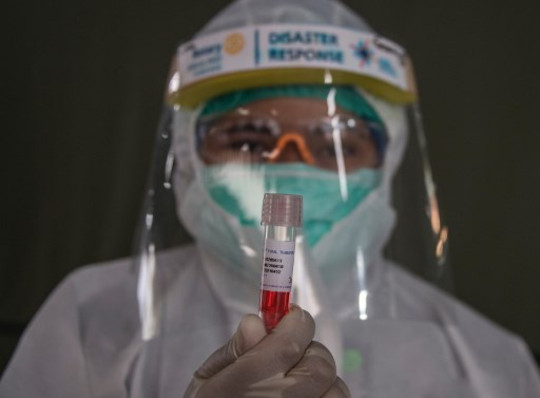A chief editor of an online media outlet in Bali died on July 2 after having contracted Covid-19. He received treatment at a hospital after experiencing a high fever. Around 56 journalists who had contact with the chief editor along with those who attended his cremation were tested for the deadly virus.
In Surabaya, East Java, two media workers at public television broadcaster, TVRI, died on July 11 and July 12 due to Covid-19. The spread of the virus led the TVRI Surabaya office to cease operations for 15 days. TVRI Surabaya will relay the content from its headquarters in Jakarta. On July 9, TVRI Surabaya offered rapid tests to around 180 media workers. The entire office building was also sprayed with disinfectant.
Surabaya, Indonesia’s second largest city, has become an epicentre of the coronavirus with journalists among the thousands contracting the virus. At national radio station RRI, 60 media workers have tested positive. The radio station temporarily closed its Surabaya office and, starting on June 27, will only relay programs from RRI Jakarta. Initially the RRI Surabaya cluster was not made public, a move that was criticised by epidemiologist as hindering efforts to control the spread of Covid-19. In Makassar, South Sulawesi, a journalist was hospitalised after testing positive to Covid-19.
AJI has reiterated its earlier calls to media companies, sources and government institutions to follow protocols to ensure the safety and wellbeing of journalists. AJI implores media companies to protect workers and provide adequate protective equipment. Management should also allow employees to work from home. In the field, journalists must wear masks, bring hand sanitisers and maintain physical distancing.
“AJI also warns the government to take preventive measurements to stop the spread of the coronavirus. Sources also need to cut its gathering, including face-to-face press conferences to reduce the risk for journalists,” AJI added.
The IFJ said: “In every workplace, safety should be a priority. Media workers should take necessary precautions and not risk their life or their safety. During a health pandemic, access to accurate and timely information is vital. For journalists to do their jobs properly, IFJ urges media companies to implement comprehensive safety protocols to protect the employees.”

